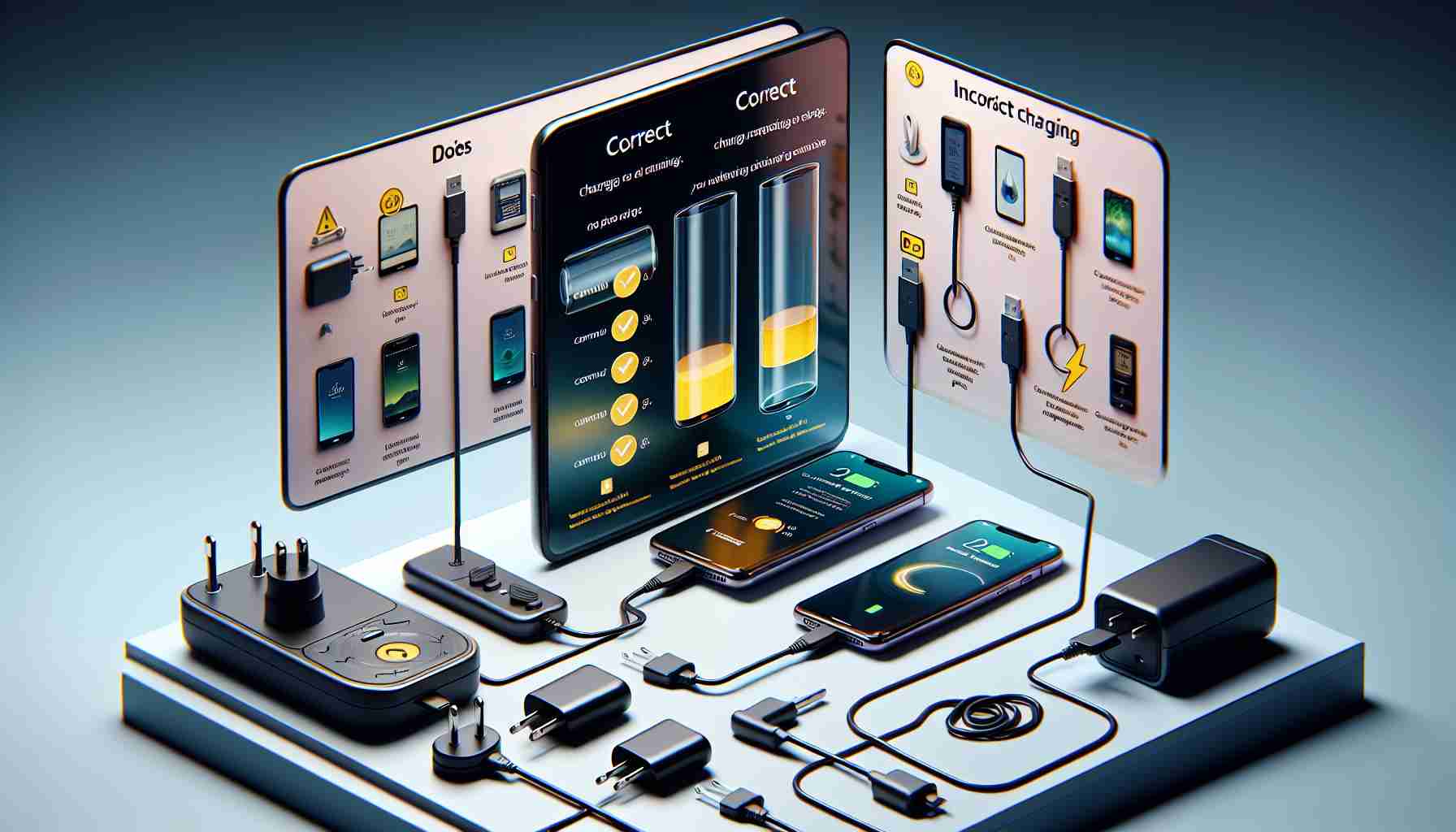In a recent announcement, the Beijing Association for Science and Technology, alongside other city departments, debunked a widespread myth about smartphone battery care. Many believe that letting a phone’s battery drain completely before recharging is beneficial, but experts clarify that this advice is outdated and potentially harmful for modern devices.
In the past, nickel-chromium batteries suffered from what was known as the “memory effect.” This issue temporarily reduced battery capacity if the batteries were not fully discharged before recharging. However, today’s smartphones predominantly use lithium-ion batteries, which function very differently.
Lithium-ion batteries do not suffer from this memory effect. In fact, it is the number of complete charge cycles that influences their longevity. Contrary to former beliefs, allowing your battery to fully deplete before recharging can actually decrease its lifespan. The optimal practice for these batteries is to charge them before they are completely drained.
Caring for your smartphone’s battery means not waiting until it’s entirely out of power. It’s advisable to begin charging once the battery level falls below a certain percentage but before it reaches zero. Moreover, it’s equally important to avoid overcharging.
The question remains: at what battery level do you typically charge your phone? The consensus is to maintain a moderate level, neither too low nor too high, ensuring the longevity of your device’s battery life.
Smartphone Battery Myths Busted: What You Didn’t Know About Charging Habits
In today’s fast-paced digital era, smartphones are indispensable tools for communication, entertainment, and productivity. While most users are aware of basic smartphone maintenance tips, few know the nuanced science behind battery care. With the shift from nickel-chromium to lithium-ion batteries, our understanding of optimal charging practices needs a refresh. Let’s delve into some surprising implications of this shift and explore how this knowledge affects our lives and communities.
Impact on Lifestyle and Environment
Understanding lithium-ion battery care transcends personal smartphone maintenance. On a broader scale, it impacts how communities manage electronic waste and energy consumption. By adopting smarter charging habits, individuals can extend the lifespan of their devices, mitigating the rapid turnover of electronic products and subsequently reducing e-waste.
Interesting Facts and Controversies
– Fact: Lithium-ion batteries have revolutionized portable technology with their higher energy density and lower self-discharge rates compared to older battery types.
– Controversy: A persistent myth suggests fully draining a battery optimizes its performance, which stems from outdated practices associated with older battery technology. This misconception still influences consumer behavior and marketing strategies.
– Alternative Technologies: Some tech innovators are exploring solid-state batteries that promise even greater efficiency and longevity, potentially resolving current challenges with lithium-ion batteries.
Advantages and Disadvantages of Lithium-Ion Batteries
Advantages:
– Efficiency: These batteries have a high energy density, making them ideal for compact and portable devices.
– No Memory Effect: Unlike their predecessors, lithium-ion batteries don’t suffer from memory issues, allowing for versatile charging habits.
Disadvantages:
– Degradation: Over time, lithium-ion batteries degrade, especially if frequently charged from a very low or very high state of charge.
– Safety Concerns: They can occasionally pose safety risks, such as overheating or combustion, albeit under rare circumstances.
FAQ: Common Concerns About Battery Charging
Q: Can charging my phone overnight damage the battery?
A: While modern devices are designed to prevent overcharging, consistently charging up to 100% and maintaining it there can accelerate battery degradation over time. Using smart chargers or features that pause charging once full can alleviate this issue.
Q: Is wireless charging as efficient as wired charging?
A: Wireless charging tends to be less efficient, generating more heat, which can contribute to faster battery wear. However, for convenience, it remains a popular choice.
Final Thoughts
Adapting to new charging habits not only enhances the lifespan of personal devices but also contributes to reducing electronic waste. Educating communities about these facts helps promote sustainable practices and encourages technological innovation aimed at further improving battery technology.
For more insights on technology and its impact on everyday life, visit TechCrunch or CNET.























